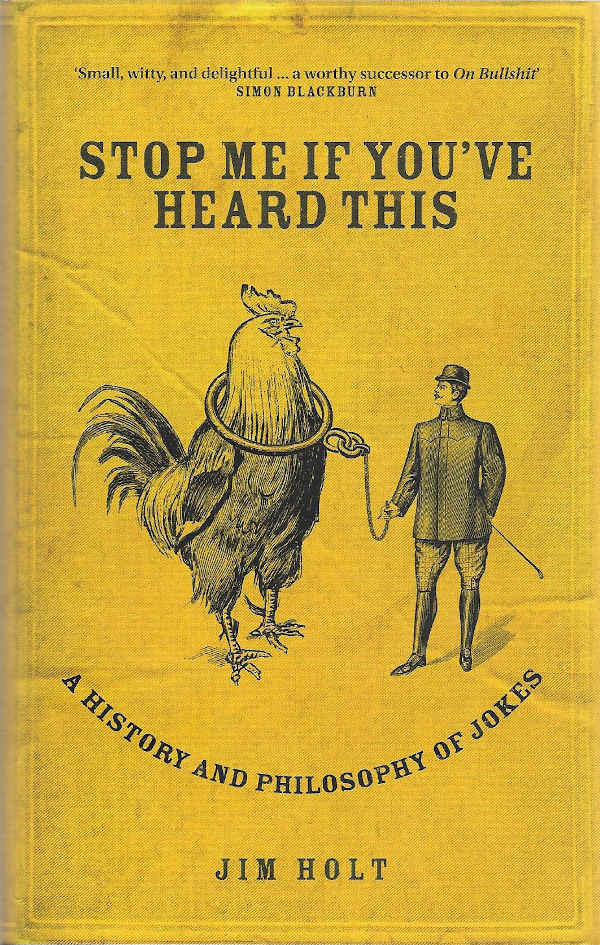
A history and philosophy of jokes Stop Me If You've Heard This is the first book to trace the evolution of the joke from the stand-up comics of ancient Athens to the comedy-club Seinfelds of today. Cropping up en route are such unforgettable figures as Poggio, a Renaissance papal secretary and sexual adventurer; and Gershon Legman, the FBI-hounded psychoanalyst of dirty jokes. Having explored humor's history in part one, Jim Holt then delves into philosophy in part two. Jewish jokes; Wall Street jokes; jokes about rednecks and atheists, bulimics and politicians; jokes that you missed if you didn't go to a Catholic girls' school; jokes about language and logic itself—all become fodder for the grand theories of Aristotle, Kant, Freud, and Wittgenstein. A heady mix of the high and the low, of the ribald and the profound, this handsomely illustrated volume demands to be read by anyone who has ever peered into the abyss and asked: What's so funny?
 €8
€8
A history and philosophy of jokes Stop Me If You've Heard This is the first book to trace the evolution of the joke from the stand-up comics of ancient Athens to the comedy-club Seinfelds of today. Cropping up en route are such unforgettable figures as Poggio, a Renaissance papal secretary and sexual adventurer; and Gershon Legman, the FBI-hounded psychoanalyst of dirty jokes. Having explored humor's history in part one, Jim Holt then delves into philosophy in part two. Jewish jokes; Wall Street jokes; jokes about rednecks and atheists, bulimics and politicians; jokes that you missed if you didn't go to a Catholic girls' school; jokes about language and logic itself—all become fodder for the grand theories of Aristotle, Kant, Freud, and Wittgenstein. A heady mix of the high and the low, of the ribald and the profound, this handsomely illustrated volume demands to be read by anyone who has ever peered into the abyss and asked: What's so funny?